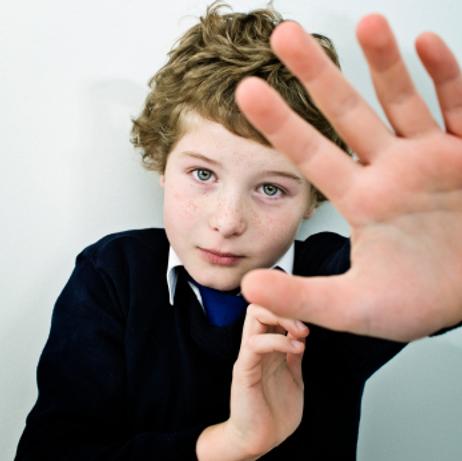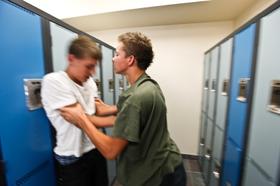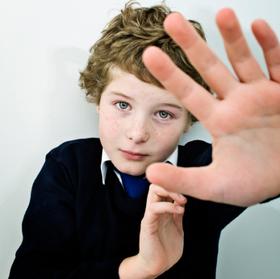The start of a school year can be an exciting time for kids as new teachers and friends broaden their world in many positive ways. However, the presence of a bully in that world can transform what should be a constructive learning environment into a scary place for kids. With many disturbing reports of suicides recently as a result of bullying, it is important for parents to acknowledge the potential for bullying and take steps toward prevention or dealing with a situation that already exists. Fortunately, there are many positive actions parents can take to protect their children from bullying.
Types of Bullying
The Mayo Clinic lists a number of different types of bullying children might experience today, including the following:
- Physical Bullying – hitting, kicking or other types of aggressive physical behavior
- Verbal Bullying – incessant teasing, name calling, spreading rumors or racial slurs
- Cyber Bullying – tormenting another child through cell phones or the Internet
Children may be bullied through just one of these channels, or a combination. The dangers of cyber bullying are particularly pronounced, since this type of bullying can invade the privacy and safety of the home environment. While bullying that is done at school can be left there at the end of the school day, cyber bullying can become incessant. Psychologists believe that is one of the reasons why cyber bullying has resulted in a number of suicides by the victims of the behavior in recent years.
Know the Warning Signs
When a child becomes a victim of bullying, he is often reluctant to bring the problem to his parents or other adults who could help him. Parents must be tuned into their children’s behavior if they are going to recognize the warning signs that their child is being bullied. Education.com lists some of those warning signs as the following:
- A child comes home with missing or damaged personal items
- The child begins taking a different route home from school
- A child has few friends outside of school
- The child frequently complains of physical ailments
- A child seems depressed when she comes home from school
- The child suddenly has difficulty sleeping
- A child begins to perform poorly at school
While these symptoms can signal any number of potential problems, bullying should never be ruled out in the case of behavior changes and other issues. When a child begins to exhibit any of these signs, it is important for parents to work extra hard to open up lines of communication with the child, his teachers and even his friends in an effort to determine the reason behind the new behaviors.
Prevention Tactics
To help prevent your child from becoming a victim of a bully, CBS News recommends the following:
Beware Certain Online “Neighborhoods” – Social networks like Facebook can be a place for kids to gather online, but it can also become a tool bullies use to torture their victims. There are also social sites online, such as FormSpring.me and StickyDramas, that feature little monitoring and become a hornet’s nest of bad online behavior. Do not let your kids hang out in these bad online “neighborhoods” any more than you would let them hang out in dangerous neighborhoods around your town.
Monitor the Cell Phone – Kids who are getting bullied through the cell phone can get messages any time of the day or night. Late night texts can do more than torment victims; they can keep the child from getting much needed sleep. Sleep deprivation can make it that much more difficult for victims to deal with the situation. Set a curfew for cell phone use, and then leave the phone on the kitchen counter at night to ensure a good night’s rest.
Keep Your Eyes Open – Some parents are hesitant to monitor their children’s texts or social networks because they worry it will appear they are prying because they don’t trust their kids. However, the online world has made it even more important for parents to know who their kids are hanging out with and what they are doing on these devices. Let your kids know you are monitoring for their own protection, rather than as a punitive measure.
Communicate – Parents have the difficult task of keeping lines of communication open with their children, even when the kids don’t want to share their live with their parents. However, CBS reminds parents that parental radar usually goes off for a reason. Parents need to listen to the warning signals and act on them when necessary by opening those communication lines even further.
When Your Child is Bullied
When you realize that your child has become a victim of a bully, it is important to take steps to protect your child. Education.com suggests the following action:
- Let your children know they can go to an adult when they can’t handle the bully on her own
- Address the issue promptly with the child’s teacher or the school principal
- Encourage your child to spend time outside school with his immediate circle of friends to build self-esteem and confidence
- Help your child develop positive skills in sports, music or art
- Urge your child to stick with friends at school, especially in situations when bullying is more likely
- Have your child talk to a counselor about the situation
Bullying is an unfortunate byproduct of childhood, but it doesn’t have to negatively impact your child for a lifetime. With these tips, you can help your child deal with any sort of behavior they might encounter in the classroom and beyond.
Questions? Contact us on Twitter. @publicschoolreview














